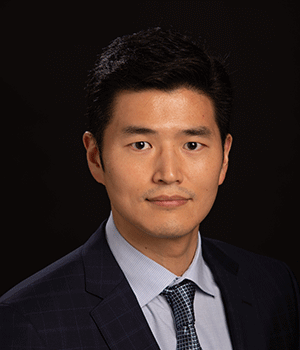
Chanyeop Park, assistant professor, electrical engineering, has brought to UWM a $172,000 National Science Foundation-funded research study on electronic materials that function while being stretched, bent or compressed.
The research could support the development of soft electronic technologies–such as biorobotics and soft robotics—that rely on highly flexible, electronic materials.
Park’s study focuses on composites that have gained extensive attention from the scientific community for such applications: soft polymers with metals that are liquid at, or near, room temperature.
One hurdle to their use, he says, is developing a greater understanding of their aging and failure mechanisms.
Park is working with Amanda Koh, assistant professor in chemical and biological engineering at the University of Alabama. Their project combines experimental analysis and numerical modeling to identify key physics that lead to the unique electrical performance, aging and breakdown of these promising composites. The goal, he said, is to identify the mechanisms that ensure the material’s dielectric integrity.
Dielectric materials make it possible to safely store, deliver large amounts of energy
Park is an expert in researching the dielectric integrity of future power technologies.
Dielectric materials, he explains, are used in energy-storage devices to provide insulation. “They isolate conductive components from one another, prevent sparks between them, and make it possible to safely store and deliver large amounts of energy.”
An everyday example of a dielectric material is the plastic insulation around a cellphone’s charging cord, Park explains. Over time, and with enough bending, the insulation might degrade, causing the cord to fail.
Like the charging cord, flexible biorobotics carry power and bend. However, the amount of power they carry in a small space presents a challenge: developing dielectric materials that make it possible for such compact devices to safely and consistently deliver high levels of power.
Park says his overall research mission is to secure the dielectric resiliency and to prevent the electrical aging of advanced power technologies. Through the Office of Naval Research, he also is researching solutions to mitigate partial discharge in power electronic converters that are driving the electrification of naval ships.